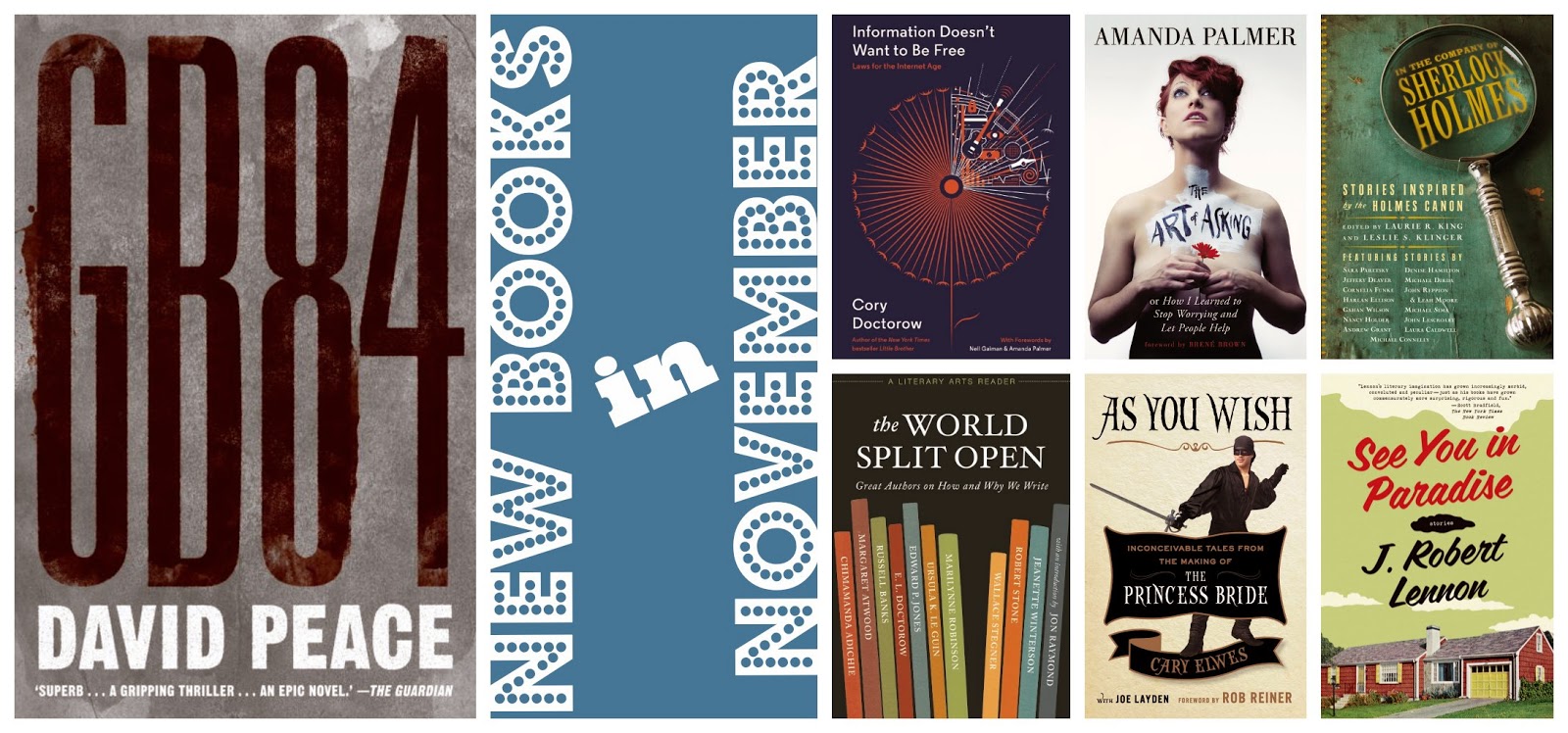October was a month of some seriously amazing reads for me, in part because I spent August getting so far ahead on review copies (what with that month-long trip I took in September) that I had more time to read at my leisure in October and spent less time worrying about upcoming deadlines. Readathon helped move the TBR list along, as well,
even though I didn't get as many hours in as I had originally intended.
Stone Mattress, by Margaret Atwood: I would read IKEA assembly instructions if Margaret Atwood wrote them, so perhaps I'm not the most unbiased of judges on her newest collection of short stories. But I found
Stone Mattress compelling and heartfelt and wonderful, exploring the trials and pains and delights of aging, all with a touch of the stark and a touch of the strange that we have come to expect from Atwood's ever-sharpening pen. More, please.
A Rogue by Any Other Name, by Sarah Maclean: My first foray into romance, and I don't necessarily think it will be my last (though it definitely falls outside my normal purview of selected reading). Maclean's story of a fallen aristocrat now running a gambling hall and his unlikely wife is enticing and juicy and contains just enough drama to be interesting without bordering on soap-opera-esque. Having nothing to compare it to, I can't rightly review it, but I can say it was an incredibly fun readathon read (I finished it in a day).
Horrorstor, by Grady Hendrix: Perfect readathon choice, and perfect pre-Halloween reading. How could one not love the clever set-up of a somewhat haunted IKEA-like store? The hook works, and though the story is somewhat hokey, it has a staying power I didn't expect. (P.S. I never thought I'd reference IKEA not once but twice in a review round-up, but I suppose there's a first for everything.) Longer review of
Horrorstor in my
Halloween mini-reviews.
All the Light We Cannot See, by Anthony Doerr: It's hard not to say anything about this NBA-nominated novel that hasn't already been said, besides, perhaps, "Why did I put this off for so long?" If you haven't read this already, go do it. Now. No, really. The story of a blind girl in occupied France and a young German soldier with a knack for radios comes together in the most unexpected of ways, and every word Doerr writes is a delight for all five senses.
Florence Gordon, by Brian Morton: I picked this up after Shannon at River City Reading recommended it... and she could not have been more spot-on. The story of an aging feminist writing her memoir is so much more than that, and I plan to press it into the hands of EVERYONE I KNOW.
The Ocean at the End of the Lane, by Neil Gaiman: I'm still putting all my thoughts into semi-coherent words for this one, but suffice it to say: I loved it. Full of the whimsy and wit I love in Gaiman's writing, fully reminiscent of some of my favorite Who episodes, and an audiobook read in Gaiman's own crooning voice = all around win.
And then this list gets really long, because some of those books I read in August are finally published, so I can talk them up:
Alphabet, by Kathy Page: Perfect reading for anyone who read and enjoyed Rene Denfeld's
The Enchanted earlier this year. The story of a man in prison for killing his girlfriend,
Alphabet manages to touch on the (many, many) flaws of the British prison system, the psychology of a killer, our human insecurities, and the complications of sexuality (including a trans character). It's a lot to pack into a relatively short novel, but it works, and is oddly, unexpectedly compelling along the way. Full review to come.
If I Knew You Were Going to Be This Beautiful, I Never Would Have Let You Go, by Judy Chichurel: This short story collection has the longest title ever, but the stories within it are crisp and concise and perfectly capture a small working-class town on Long Island in the 1960s. Viewed as a novel, the narrative arc here is so spotty as to be non-existent; viewed as a collection of linked stories, the chapters are perfect in their insights.
The Short & Tragic Life of Robert Peace, by Jeffrey Hobbs: This actually published in September (and my full review from Shelf Awareness for Readers is here), but since I was galavanting around Europe on pub date, I didn't give it the attention I think it deserves. This is a smart, insightful biography of a young man whose life was cut tragically short. Its brevity does not prevent his life from carrying so many lessons about poverty, education, and acceptance in our country. Seriously:
Read this.
The Wilds: Stories, by Julia Elliott: At BEA this year, I asked the ever-amazing staff at the Tin House booth which
one book in their booth they would recommend to someone with limited suitcase space. This was the collection pressed into my hands, and it is just as strange and wild and wonderful as I'd hoped it would be. Full review to come.
---
After that rather lengthy list, I want to know:
What were the best books you read in October?















